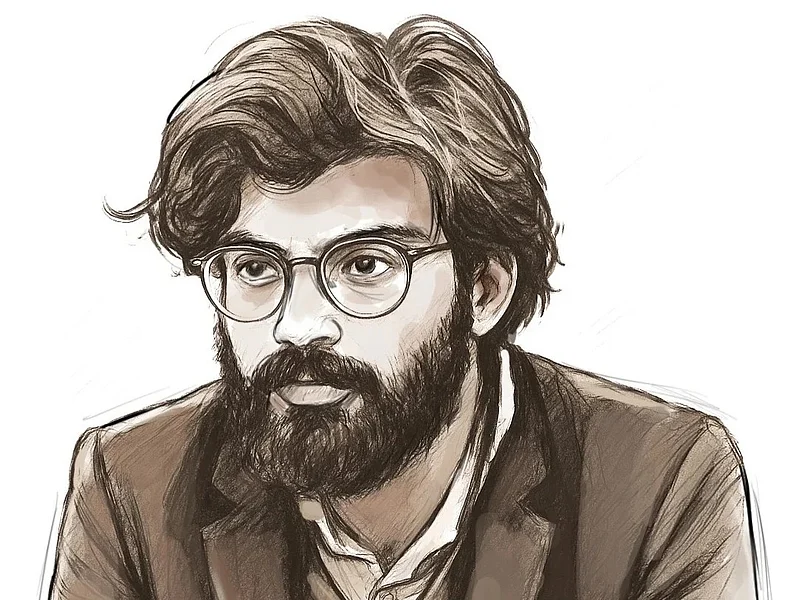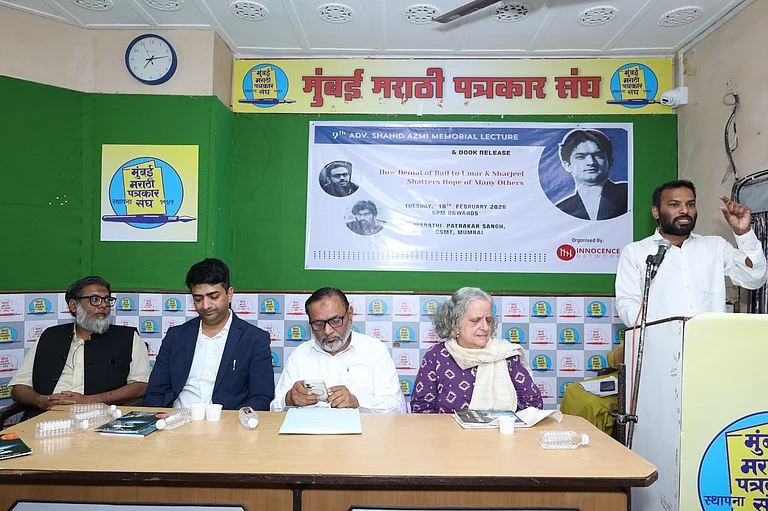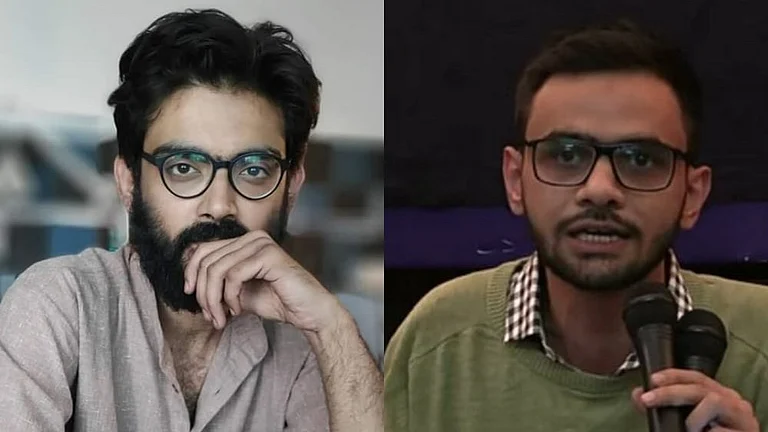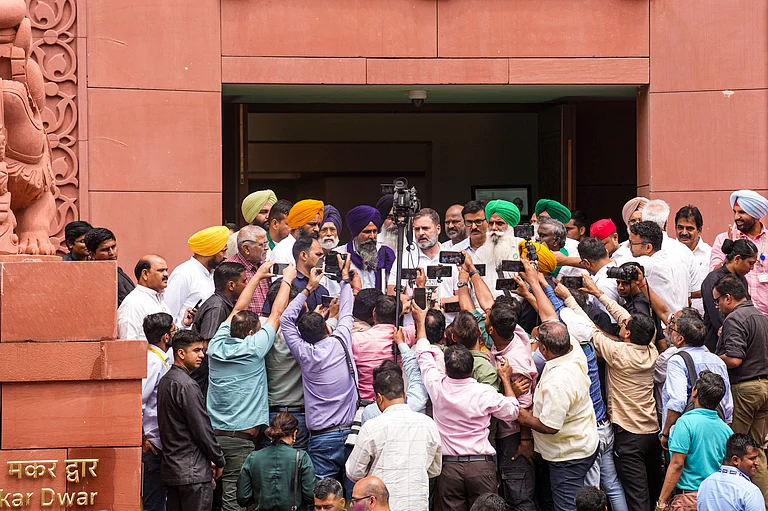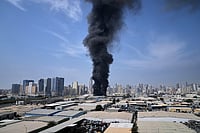
Sharjeel Imam will contest the Bihar Assembly election from Bahadurganj from jail.
He aims to promote minority empowerment and structural democratic reforms.
His campaign combines political, educational, and cultural efforts.
On January 5, 2026, the Supreme Court is set to announce its judgement on the bail pleas of anti-CAA activists Umar Khalid, Gulfisha Fatima, Sharjeel Imam, Shifa Ur Rehman, Mohd. Saleem Khan, Meeran Haider and Shadab Ahmad in the Delhi riots 2020 larger conspiracy case under FIR 59/2020. All the accused have been in jail for close to six years now and their bail pleas have been rejected twice each by the lower court as well as the Delhi High Court. Human rights organisations across the globe have highlighted the inordinate delay in trial and the prolonged incarceration that the undertrials have faced in this case. Recently, eight U.S. Congressmen also wrote to the Indian Ambassador Vinay Mohan Kwatra, urging India to "uphold the rights of individuals" to be granted bail and receive a fair and speedy trial.
In the light of this, we revisit this interview with Sharjeel Imam, which he gave to Outlook in 2025 after announcing his decision to contest Bihar Assembly Elections.
In 2019, Sharjeel Imam was a student, pursuing his PhD in Modern History at Jawaharlal Nehru University when life suddenly changed course—an alumnus of IIT Bombay, where he completed a dual B.Tech–M.Tech in Computer Engineering before shifting to the humanities, Imam had steadily moved from the sciences to questions of history and politics.
In Delhi, he became an active participant in the peaceful anti-CAA movement, the mass protests that spanned 2019 against the then recently amended Citizenship Act. But after a speech he delivered in Aligarh on January 16, 2020, he was arrested under a battery of criminal laws, including sedition and the Unlawful Activities Prevention Act (UAPA). He has now spent more than five years in prison, battling case after case against him.
From prison, Imam recently announced his decision to contest the Bihar Assembly election from the Bahadurganj seat in the Seemanchal region. The choice, he writes, is not just strategic but also “ideological” and “symbolic”.
Bahadurganj, with its history of neglect and recurring struggles with poverty and floods, offers him an opportunity to focus on basic issues such as education, healthcare and jobs, while mulling over what representation and democratic reforms would mean in our country.
Outlook's Saher Hiba Khan sent a questionnaire to Sharjeel Imam in Tihar Jail through his lawyers. Edited excerpts from the handwritten notes he sent.
Q. What are the reasons behind your decision to contest the elections from Bahadurganj? Was it a political, ideological, or symbolic move?
It was a mixture of all three. First of all, it is the responsibility of the educated and progressive men and women of the community to enter politics and play their roles to uplift the masses, raise the level of political discourse, debate, and propose modern and technical solutions to everyday problems.
Secondly, for the marginalised classes in general and for the Muslims especially, an ideological breakthrough is urgently needed. Repeating worn-out and clichéd slogans ad nauseam will not help us. Justice has to be the keyword. Democratisation, decentralisation, proportional representation, the way [of conducting] elections, minority reservation with internal quotas for the backward castes, and genuine religious autonomy. These should be statutory guarantees. We have to reimagine the future of our democracy for the sake of all marginalised sections.
These discourses have to be brought to the mainstream. We have to start working now. It's already too late.
Thirdly, there is a symbolic element. After all, contesting elections from jail is a powerful message, especially when one has been falsely accused of terrorism for advocating democratic rights of minorities.
Q. Did you get to know how people from your hometown, Kako in Jehanabad, feel about your decision to contest from Bahadurganj in Kishangarh district, over 400 km away?
Well, I have not been able to talk to a lot of people from my hometown. But my brother and mother tell me that many of them are excited and have offered to help. If I win from Bahadurganj, my priorities will be threefold. First and foremost, for the people of Bahadurganj, we will concentrate on education, skill development and health.
Additionally, I will work with other legislators to try to find avenues of job creation and solutions for flood-related issues. We will strive to make Bahadurganj a model Assembly [constituency] in Bihar and the nation.
Secondly, we will raise the issue of minority empowerment and devise long-term plans to make Bahadurganj and Seemanchal a centre of our emerging discourse—so that youth from Bahadurganj become ambassadors of marginalised classes from across India.
Third, to organise ourselves and help organise those who are fighting against the nefarious plans of the RSS-BJP combine—we will support every effort in that direction without compromising our demands for structural and constitutional changes.
Q. How will you campaign, what will your message be?
The message of our campaign is simple. We, the minorities and other marginalised sections who have been kept outside the corridors of power, have to build our own discourse from scratch. In regions such as Seemanchal, where the BJP doesn’t have a significant base, we have an opportunity to do positive politics and raise the issues of structural and constitutional changes, necessary for a dignified life.
It is also through such calculated risks that we will be able to put pressure on secular parties to pay heed to our democratic demands and stop using us as passive vote banks, told to submit out of fear of the BJP.
Bahadurganj is a minority-dominated seat where the BJP has rarely contested, and hence we can freely discuss and debate the future of a democracy in the election campaign.
Secondly, our message is about sacrifices that thousands of us have made over the last five to ten years, including in the anti-CAA-NRC movement. Our sacrifices and steadfast commitment to our discourse are our assets. The message in short is, we need a plan for the future, not just emotional speeches, a publicly expressed plan for democratisation, a set of demands; we have to reinvent our politics, and we need new leadership for that.
Now the second part, to actually reach voters, is the most crucial one. A team of friends and family are already on the ground, trying to set up the foundation for the campaign. The response has been positive. However, it is a large rural constituency and the penetration of social media and smartphones is not as great as in Mumbai or Delhi. So, we have to keep working to reach our audience. I am sure we will find them receptive.
Q. There is already some traction about your campaign in social media. What do you have to say about this?
Obviously, I am pleased to hear about this. Not just the reach on social media, but also the dedication and optimism of our team. I am proud of them. It is a long journey and a struggle ahead of us. The elections are just the starting point. This atmosphere on social media and widespread support give us hope and show us that we are already helping set the discourse for starting the conversations. It gives us hope that in months and years to come, we will be able to build something tangible; something which may help the voiceless find their voice in this chaos.
Q. Do you intend to align with any political parties in the future?
We are ready to work with or associate with any political party that is ready to help us spread our ideas and demands on systematic and constitutional changes. As I have mentioned earlier, we support the principles that stand on decentralisation of parties [politics] such as Dravida Munnetra Kazhagam, Trinamool Congress and Rashtriya Janata Dal.
Similarly, we expect support on issues such as proportional representation, the method of elections and reservations for minorities, etc. What is paramount for us is to focus on building our discourse and building our sustained movement around the core issues. We welcome the help of all parties in a struggle which is necessary for all of us. But we will be wary of those who call themselves secular but enjoy the fruits of fear-based politics and take Muslim votes for granted.
Q. It’s been five years since you’ve been in jail, and many civil rights activists have called your arrest unfair. How has it changed you, emotionally or mentally?
It has been difficult at times, but faith in God and the righteousness and relevance of our cause gives me patience as well as peace. I have become more patient—and less trusting—but also more sensitive to human misery by observing the many inmates here. Books on history, Islam, poetry, and physics have helped me get through these difficult times. If you possess a childlike wonder, every day brings new revelations.
In the words of Hafiz Shirazi:
Ba har so jalwa-e-dildaar deedam
Ba har cheeze jamaal-e-yaar–deedam
In every direction, I saw the radiance of the Beloved
In everything I beheld the beauty of the Friend.
Q. The Bombay High Court recently acquitted several men in the 7/11 blasts case after nearly two decades in jail. What was your reaction?
From what I have been able to gather from the mainstream media, newspapers, etc., the Bombay High Court order says that the prosecution scapegoated these accused. It is another instance of Muslims being subjected to a media trial, hate campaign, and biased prosecution. A terrorist attack leaves all of us devastated and angry, but we should seek justice and not revenge, so that jailing innocent Muslims should not seem justifiable.
Otherwise, what is the difference between us and terrorists? We have to remember that a just and humane legal system is designed primarily not only to put the guilty behind bars, but also to make sure that innocents are not jailed. The process should never become a punishment. I would also like to say a few words about the UAPA, especially the hasty 2009 amendment after the Mumbai terrorist attacks.
Before 2009, the UAPA was invoked for political offences, separatism, Maoism, etc., or offences against the State as defined by the term ‘unlawful activity’, ‘terrorism’. And crimes against humanity, such as targeting civilians to spread terror and justifying killing innocents is an infinitely more serious offence. It was handled by different laws, such as the Terrorist and Disruptive Activities (Prevention) Act or TADA and then the Prevention of Terrorist Activities Act (POTA). Though even these laws had some draconian features, the UPA (United Progressive Alliance) government, in its first term, repealed POTA.
But in 2009, it included most of it [the deleted provisions] in the UAPA, transforming an act dealing only with political offences into the black law we see today. The difference between political dissent and terrorism has been erased by this gross mistake. And in the public perception, the two have become one and the same and that reduces the space for political and democratic resistance. This may inadvertently lead disillusioned youths to more dangerous and darker paths. Lack of justice, coupled with such blatant perversion of legal processes, does not bode well for our democracy.
Q. What is your blueprint for young Muslim voices, eager to join mainstream politics?
First of all, we have to get our objectives right, our goals clear. We want structural changes for the empowerment of the marginalised classes. We have to get out of the inferiority complex, especially regarding the partition, reassess that chapter, and ask ourselves: Were the demands of federalism and minority rights made in the 1940s justified? Did not the majoritarianism of elements in Congress force the partition?
It’s a long struggle. We have to learn, unlearn, get organised and be ready to play constructive as well as disruptive roles, as the situation demands.
We have to collect scientific data about the social, economic, and educational conditions of Muslims. We must know where we stand. We can never compromise on our core objectives.
While we have to work on alleviating the painful symptoms, our struggle should always be oriented towards solving the root cause of the problem, the statutory share for minorities in the power structure.
We will keep toiling without seeking the limelight. We have to learn to be democratic ourselves. The way forward has to be arrived at by deliberation, learning, and consensus. Faith in God and the Quranic message of equality, justice, and human dignity.
Sacrifice and patience have to guide our movement. Once we have the critical mass of like-minded individuals ready for struggle and sacrifice, the results will be wonderful. Also, electoral politics is just one facet of our struggle. Educational, scientific, cultural and, most importantly, disruptive capabilities have to be continuously developed.







